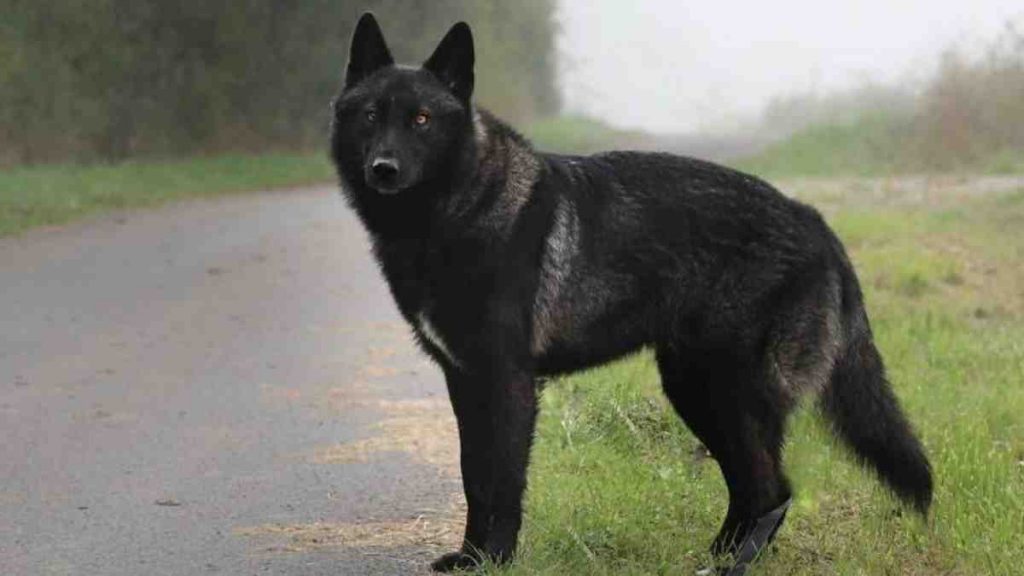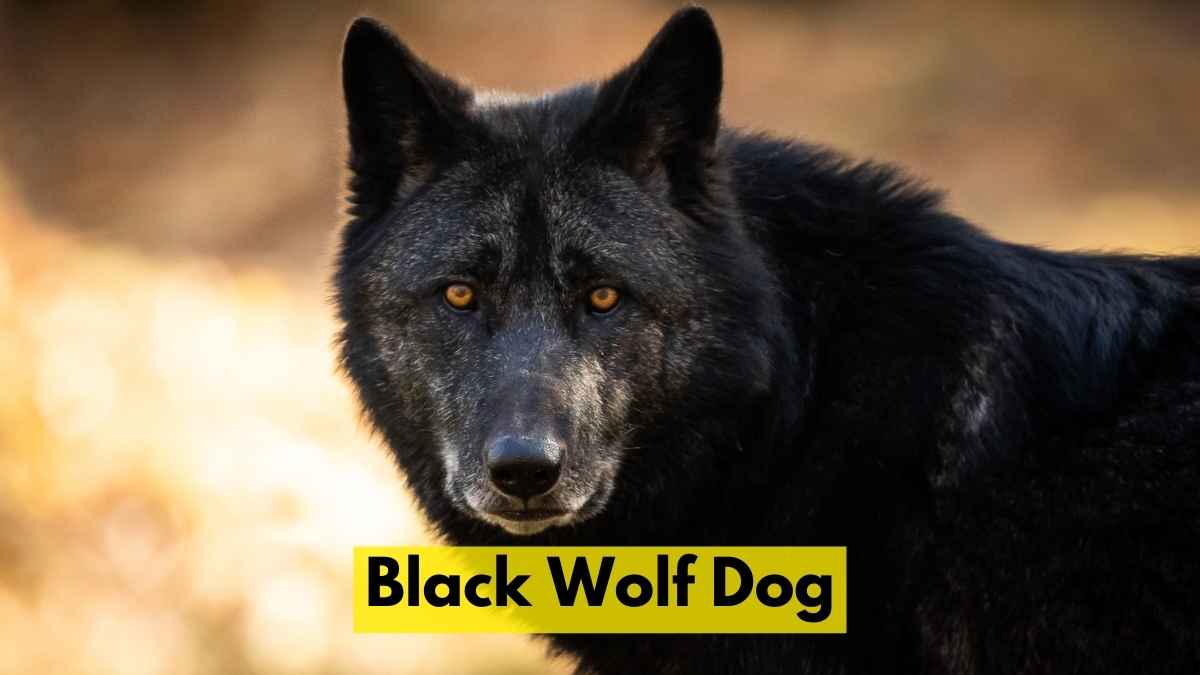The black wolf dog is an enigmatic and captivating canine breed that has always held a special place in my heart. Its striking appearance and intriguing mix of wolf and dog characteristics have made it a fascinating topic of discussion among dog enthusiasts. In this article, I will share my personal experience and insights into owning a black wolf dog, shedding light on their temperament, challenges, and the joys they bring into our lives.
Table of Contents
What Is a Black Wolf Dog?
A black wolf dog is the product of crossing a wolf with a domesticated dog, such as a German Shepherd, Siberian Husky, or Alaskan Malamute. This unique hybrid can vary in behavior and appearance, with some leaning more towards their wild wolf ancestry, while others exhibit more domestic dog traits. Understanding the content level of your black wolf dog is crucial, as it greatly influences their behavior and training needs.
Owning a black wolf dog is a decision that shouldn’t be taken lightly. Depending on your location, it may even be illegal, and the commitment required to provide for their specific care needs can be challenging.
Black Wolf Dog Appearance
The appearance of a black wolf dog is as diverse as their personalities. They tend to have a wolf-like appearance, characterized by a thick, black double coat, long muzzles, and distinctive eye colors, such as brown, green, or blue. In comparison to wolves, their heads are slightly smaller, and their pointed ears are often larger.
If your black wolf dog inherits more wolf genetics, you may notice longer teeth, allowing for deeper bites. Additionally, the presence or absence of dewclaws can vary, depending on which parent’s traits they inherit. Altogether, the black wolf dog exudes a mystical and wild charm that’s impossible to resist.
Black Wolf Dog Color Genetics
The solid black coat of a black wolf dog is attributed to the dominant black gene known as eumelanin. This gene is responsible for producing black pigment across the entire body of the wolf dog. It’s expressed in the K locus of their genes, and due to its dominant nature, just one copy is needed to manifest the black coat. When one of the parents carries this dominant black gene, a black wolf dog offspring is the result.

Black Wolf Dog Temperament and Personality
The temperament of a black wolf dog can be quite unpredictable, and it often depends on their wolf lineage. These intelligent, loyal, and active canines require constant companionship and thrive when provided with the right environment and social interactions.
Their territorial nature means that you need to carefully select their canine companions, and when interacting with children, supervision is essential due to their high prey drive. Adequate physical and mental stimulation is necessary to keep them happy and prevent destructive behaviors stemming from boredom.
Black wolf dogs are curious creatures, so secure enclosures are a must to prevent them from wandering. It’s also important to be aware of the winter wolf syndrome, which can cause hormonal changes and lead to possessiveness, grumpiness, or aggression.
Owning a black wolf dog requires a highly capable and dedicated owner who can provide the right care, training, and environment. It’s not a pet for everyone, but the bond formed with these unique canines is truly special.
Black Wolf Dog Lifespan and Health Issues
Black wolf dogs have an average lifespan of 12 to 18 years, but they can still be susceptible to health issues common in both dogs and wolves. These include elbow and hip dysplasia, canine distemper, canine parvovirus, tuberculosis, and various skin problems. Regular vet visits and a balanced diet are essential to keep them healthy.
The Costs of Owning a Black Wolf Dog
Owning a black wolf dog is a financial commitment, with initial expenses ranging from $605 to $2,445. These costs include food, bedding, grooming essentials, vet visits, and more. Monthly expenses can range from $147 to $404, so it’s important to consider these recurring costs when deciding to bring a black wolf dog into your life.
Places to Find Black Wolf Dogs
Before searching for reputable breeders, it’s essential to ensure that owning a black wolf dog is legal in your area. Volunteering at wolf dog sanctuaries and joining online communities dedicated to this breed can help you gain valuable insights into their care and behavior.
Dog Breeds That Resemble Black Wolves
If owning a black wolf dog isn’t feasible, you can consider other dog breeds that share similar striking features. Breeds like the black Siberian Husky, German Shepherd, Akita, and Alaskan Malamute possess a regal beauty reminiscent of black wolves. However, always consider their temperament and compatibility with your lifestyle.
Conclusion
My experience with a black wolf dog has been both challenging and rewarding. These magnificent canines demand a unique set of care requirements, and not everyone is cut out for the task. However, the bond formed with a black wolf dog is unlike any other, and for those willing to put in the effort, the rewards are immeasurable. If you’re considering owning one, make sure you’re well-prepared and committed to providing the love and care these captivating animals deserve.
You May Also Like:

